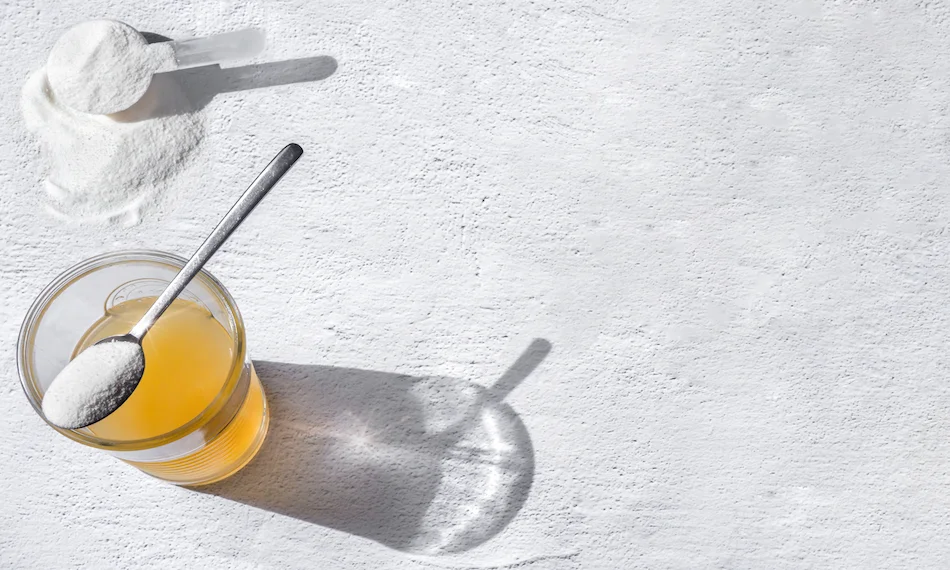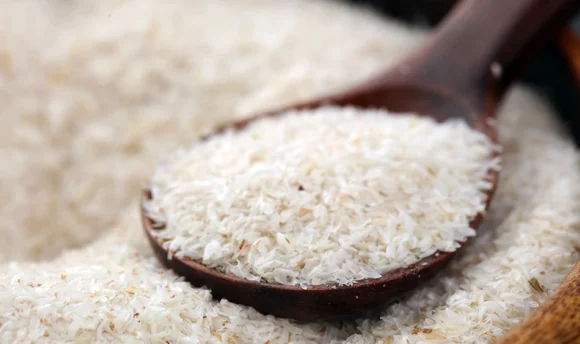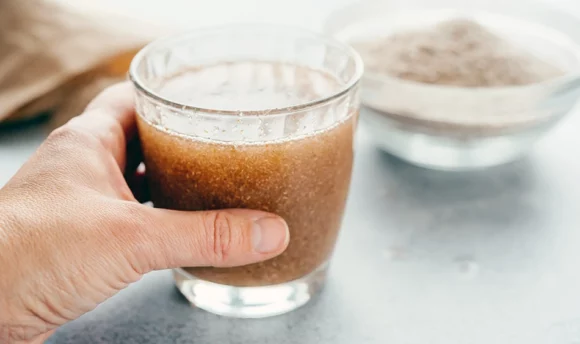Metamucil for Weight Loss: Everything You Need to Know
Discover if you can slim down with this popular fiber supplement

Weight loss is an always-trending topic in the wellness community. As obesity is on the rise, adults often turn to fad diets and supplements that promise to burn fat magically.
One of the supplements that has caused a buzz is Metamucil. The soluble fiber
supplement is made from psyllium husk, which is derived from the seeds of the Plantago ovata plant.
Adding Metamucil to your daily health routine may be a great way to increase your soluble fiber intake, which offers various potential health benefits. Can this fiber supplement help you lose weight?
Metamucil and Weight Loss: Is There a Link?
Metamucil or similar fiber supplements might have some benefits, but they shouldn’t be used to lose weight as more research is still needed.
However, daily consumption of fiber from psyllium husk may aid in appetite control because it slows down gastric emptying and reduces the feeling of hunger or desire to eat. As a result, when you have a low appetite, your caloric intake reduces, which may result in steady weight loss over time.
As fiber moves through your digestive tract, it absorbs water and forms a gel-like consistency. Soluble fiber eases the passage of stool and promotes regular bowel movements.
Regular use of psyllium fiber may also improve glucose metabolism, regulate blood sugar levels, and therefore can help you to shed a few pounds. All in all, this supplement is not advertised as a weight loss aid and it should not be used for that purpose. It is best to combine fiber supplementation with healthy foods and exercise to achieve long-lasting results.
How to Take Metamucil for Weight Loss
Metamucil comes in different forms, such as powder, gummies, or capsules, and the dosage depends on the product you’re taking. The powder formulations contain 2.4 grams of soluble fiber per serving, while the Metamucil capsule has 1.8 grams of fiber per serving.
According to USDA, the recommended dietary fiber intake per day is 28 grams on a 2000-calorie diet. This recommendation can help you figure out the right dosage for Metamucil for you.
Follow the instructions on the product package and take the recommended dosage. For the powder, mix a scoop of Metamucil with a glass full of water. The capsule should be taken with a glass of water to prevent choking. If you are taking the gummies, chew thoroughly before swallowing.
If you’re taking Metamucil for weight loss, consider combining the supplement with a healthy diet and a regular exercise routine, and keep track of your progress. Take Metamucil before your meals for appetite control.
What Are the Benefits of Metamucil for Weight Loss?
There are several potential benefits of taking Metamucil. The fiber content reduces appetite, curbs cravings, regulates blood sugar levels, and lowers cholesterol, which is beneficial for a healthy lifestyle.
Below you will find some of the advantages of Metamucil for weight loss.
#1 Provides a feeling of satiety
Metamucil may help you with appetite control. Daily consumption of psyllium husk can help you to feel fuller for longer, which leads to a reduction in your calorie intake. Consuming fewer calories every day can contribute to steady weight loss over time.
#2 May decrease cholesterol levels
When the soluble fiber forms a thick gel, it binds to cholesterol and facilitates its expulsion from the body, which lowers the absorption of cholesterol in the body. As a result, it may decrease the total cholesterol. This process may reduce the risk of obesity, heart disease, and type 2 diabetes.
#3 Reduces blood sugar levels
The fiber slows down the digestion and absorption of carbohydrates, which reduces sugar spikes and helps maintain healthy blood sugar levels. As a result, the body absorbs only a small amount of glucose, and the extra is excreted and is not stored in the body in the form of fat, which may aid in steady weight loss.
Potential Side Effects of Taking Metamucil
Despite the health benefits of taking Metamucil, there are also some potential health risks associated with the fiber supplement:
#1 Nausea and vomiting
Nausea and vomiting are common side effects of many dietary supplements. Metamucil can cause mild nausea and vomiting for some people. In case you experience this, stop taking it immediately and consult with your doctor.
#2 Diarrhea
Metamucil has a laxative effect and is used to soften stool for people with constipation. However, it can also cause diarrhea for some people. If you experience diarrhea, stop taking Metamucil and drink a lot of water to avoid dehydration and give time for the diarrhea to resolve.
#3 Bloating and gas
Although fiber supplements support the digestive system, they can also cause unpleasant side effects such as bloating. However, sometimes the side effect may be short term before your body adjusts to the new addition to your diet.
Ensure to drink enough water with the supplement to reduce the risk of bowel obstruction that may occur if you take it without adequate fluids.
Precautions and Considerations
Metamucil is contraindicated for people with intestinal obstruction, renal dysfunction, and inflammatory bowel disease and people who are allergic to psyllium. Stop using the product if you experience allergic reactions, such as hives, difficulty breathing, rashes, or swelling. If you are pregnant, ask your doctor before using the product. Do not give to children under six years.
Ensure to keep your intake within the recommended dosage. Overdosing can cause bloating because your body has to adjust to the extra fiber in your diet. Only increase your dose of Metamucil when your doctor instructs you to do so.
Aside from the side effects we have mentioned above, there is no evidence that taking fiber supplements is harmful to your health. However, Metamucil is known to interact with insulin. If you have diabetes, you should consult your doctor whether you should use the product and the correct dosage since fiber supplements can reduce blood sugar levels.
Another precaution is that Metamucil can interfere with the absorption of oral medications. The psyllium fiber is not digested or absorbed in the body. Therefore, taking Metamucil alongside oral medications can mean excreting it before the body absorbs it. The best practice is to take the fiber supplement at least two hours apart from other medications.
A Word from Our RD


Diets rich in high-fiber foods improve digestive health, reduce blood sugar and cholesterol, and promote weight loss. As a result, they lower your risk of obesity, heart disease, and type 2 diabetes. However, most adults and children do not consume enough fiber to attain the recommended dietary fiber intake.
Fiber supplements made from oat bran or psyllium husk offer a convenient way to increase dietary fiber, support digestive health, and potentially aid in weight loss. However, it’s worth pointing out that fiber supplements are not a magic pill for weight loss.
You need to be in a calorie deficit to lose weight. This means that you need to burn more calories than you consume. The primary role of fiber supplements is to increase your dietary fiber intake, and should not be used as a weight loss product.
Increase your intake of high-fiber foods, such as fruits and vegetables, and exercise regularly to lose weight. Supplementation should only be used when a doctor recommends it.
FAQ
No, Metamucil should not replace your meals but it is generally safe to consume the fiber supplement daily as part of a balanced diet.
Metamucil is not a fat-burning supplement, but its primary function is to increase your fiber intake, which may reduce your caloric intake over time. The amount of weight loss while taking Metamucil varies from person to person due to factors such as your body mass index (BMI), activity level, diet, and starting weight.
Metamucil alone will not magically reduce stomach fat. However, it is a good addition to a healthy weight loss diet since it decreases appetite, increases satiety, and improves the metabolism of fat and sugars.
Conclusion
Metamucil is a soluble fiber supplement made from psyllium husk that can treat constipation, support the digestive system, and reduce blood sugar levels. Metamucil fiber increases your daily fiber intake, keeps you full longer, curbs cravings, and may help with weight loss.
However, it may have potential adverse side effects such as diarrhea, bloating, nausea, and vomiting. Before taking Metamucil for weight loss, consult your health care provider for the safety and dosage.
Besides taking Metamucil, consider incorporating fiber-rich foods and regular exercise into your daily routine for a more sustainable weight loss.
Have you used Metamucil before? Share your experience in the comments section below.

















































 Select your language:
Select your language: 






